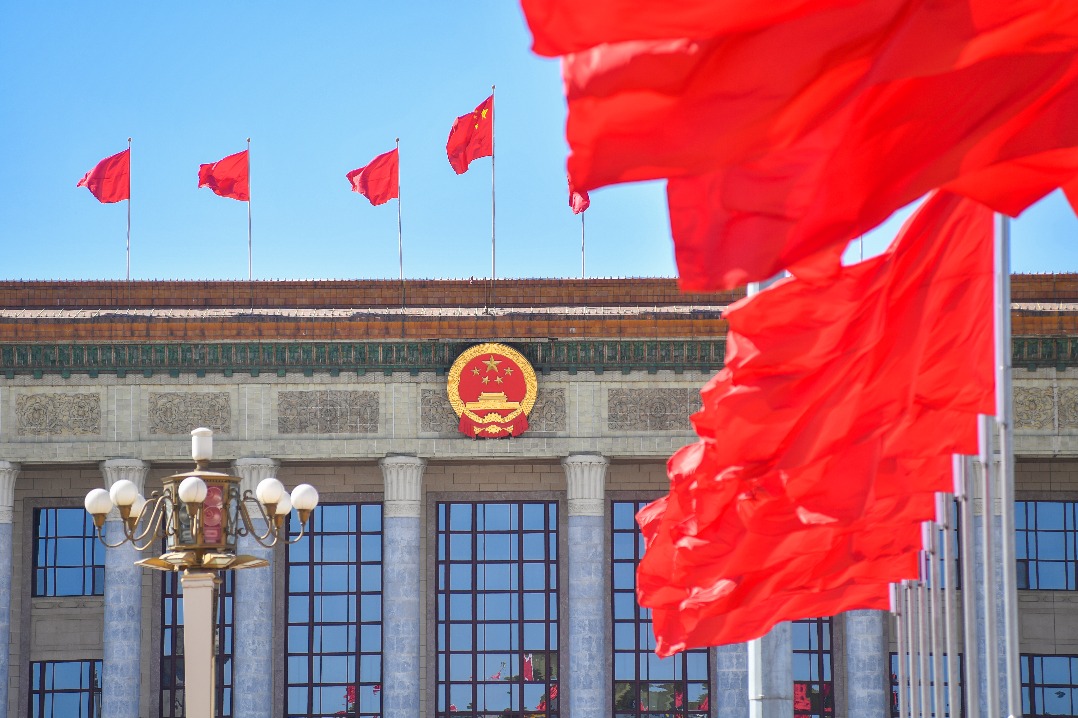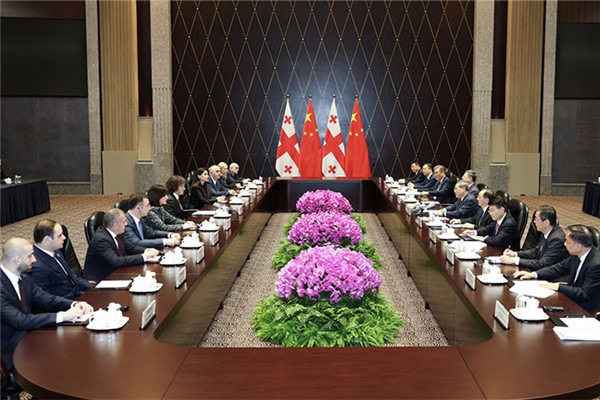New code targets abuse of power

The Ministry of Justice has issued a new code of conduct for administrative law enforcement officers, tightening oversight to curb improper and arbitrary enforcement practices such as excessive fines and inspections in an effort to improve the business environment.
The recently released 10-point code of conduct aims to address long-standing complaints from companies and the public about improper enforcement. It clarifies the limits of law enforcement officers' powers, restates disciplinary requirements and sets out clear prohibitions to prevent misconduct.
The ministry said the code is part of broader efforts to promote "strict, fair and civilized enforcement" and follows a campaign launched in March to standardize government enforcement actions involving businesses. The campaign has since identified and corrected more than 50,000 cases of improper or excessive enforcement.
The code prohibits unauthorized enforcement, including acting without credentials or delegating duties to third-party firms or temporary staff members. It also bans inaction, delayed case handling and "quota-based" or profit-driven enforcement practices.
In April 2025, a county administrative enforcement supervision bureau in Henan province found that local fire departments had been issuing nearly identical fines — about 2,000 to 2,500 yuan ($280.61 to $350.76) — every month across 23 townships. Upon investigation, it was discovered that the local fire brigade had set "monthly penalty quotas" via a WeChat work group, requiring each township to impose at least two fines per month on local businesses.
Supervisors ordered the fire brigade to cancel the quota system, correct its performance and eliminate profit-oriented enforcement. The ministry cited this case as a typical example of how improper incentive structures can distort administrative justice.
The new code also requires law enforcement officers to treat all parties equally and base their actions strictly on legal principles. They are prohibited from selective, arbitrary or "one-size-fits-all" enforcement, or from applying administrative discretion without proper consideration.
Law enforcement officers are instructed not to interfere with legitimate business activity or ignore reasonable public concerns. Practices such as using power for personal gain, falsifying reports or engaging in retaliatory enforcement are strictly prohibited.
Zhang Hong, a law professor at Beijing Normal University, said the new code reinforces the principle that administrative powers must be legally authorized.
"No government agency may act beyond what the law authorizes," Zhang said. "Yet in practice, unauthorized or delegated enforcement still occurs, even in cases where unqualified individuals act as enforcers."
Zhang noted that "inaction and slow action" remain major issues in administrative practice, including failures to register or conclude cases and excessive delays in execution. She called for stronger oversight by higher-level authorities and strict accountability where dereliction occurs.
"Administrative law enforcement is one of the most visible hallmarks of a law-based government," Zhang said. "The new code sets clear standards for fair and disciplined enforcement. It will strengthen rule-of-law practices, foster a transparent and stable business environment, and enhance public confidence in government institutions."
yangzekun@chinadaily.com.cn
- New code targets abuse of power
- National Games spark village revival
- Stronger health risk controls urged as Sichuan reports first HIV-2 case
- Census finds 103 fish species in Haihe River's main stream
- Zimbabwean physician acts as ambassador for TCM
- China's Mars orbiter observes interstellar object 3I/ATLAS




































